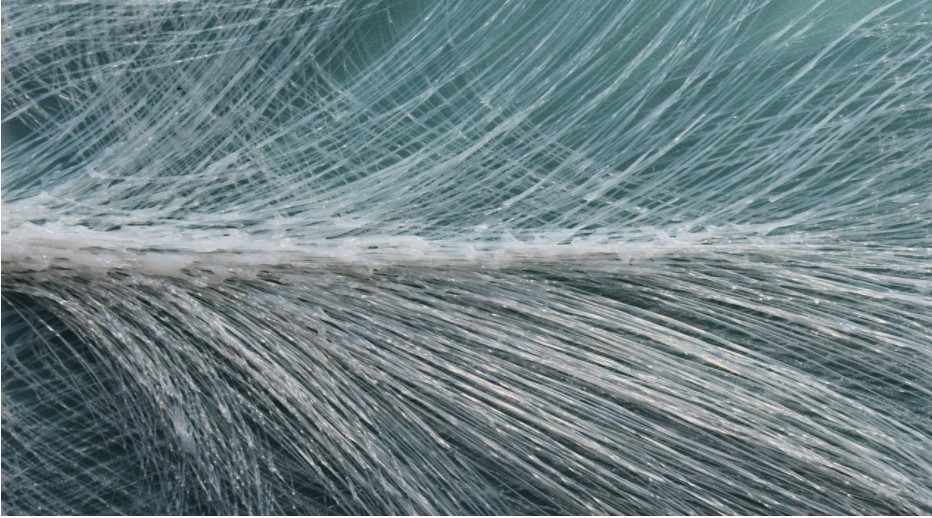The title is an obvious reference to naturally occurring mycelia and a nod to the artists’ previous international project, also called “Mycelia”. In the Latvian version, “Micēlija”, the biological term is used in an altered, feminine form, “-a” being a typical inflexion for Latvian nouns in the feminine grammatical gender. This was a deliberate choice to highlight the feminine connotation of the project. The artists interpret the biological concept of mycelium through the prism of interpersonal interactions, communications and relationships on the broader social level. Another goal was to reference their own cooperation within the project when they were looking for common grounds and points of intersection that would bring together different views, ideas, geographical backgrounds and concerns into site-specific art made expressly for this exhibition in this particular setting.
Thus, five German artists teamed up with another five from Latvia to work in tandems and produce their small creative ecosystems. The project brought together:
Karin Fröhlich (Germany) – Gundega Evelone (Latvia)
Silke Bachmann (Germany) – Ingrīda Pičukāne (Latvia)
Patricia Lincke (Germany) – Laura Feldberga (Latvia)
Penelope Richardson (Germany) – Sandra Strēle (Latvia)
Sabine Schlunk (Germany) – Guna Millersone (Latvia)
The project rested on networking within each artist couple and among them through the sharing of ideas, exchanging energies, and combining different mediums. The artworks and installations displayed in this exhibition remain in a constant mutual dialogue, reflecting the issues the artists address through fresh and diverse ways of creative expression. They relate to the artists’ pursuit of self-awareness and reflect the emotional experience and individual memories of each creator as well as their socio-historical context and heritage, highlighting the presence and importance of nature in their lives and demonstrating each artist’s subjective take on current processes. Through these emotionally packed works, the artists attempt to evoke an equally emotional response in the viewers and trigger relevant past experiences.
To quote from the artists: “Ideas grow over distances; sketches and thoughts are exchanged via digital devices. In times when COVID-19 is changing public life, ‘female networking’ takes on a new necessity for women in the visual arts because the economic consequences for art and culture are massive; and women artists are even more affected.”
This is the second exhibition in the Mycelia project, whose origins date back to 2019 when a cooperation platform was established among German and Latvian women artists for them to work together on new contemporary artworks and reflect on the role of women artists today in connection to other contentious issues whilst maintaining a network of mutual support, holding group exhibitions and other events. The project’s first exhibition was held in 2020 in Munich, Germany. For that, the artists had to manage only with indirect communication through electronic means until, in the summer of 2021, they finally met in person, coming together in a residency in Daugavpils to discuss the progress of the project, do some studio work at the Rothko Centre and draft the conceptual framework for their upcoming show.
Thus, “Mycelia” at the Daugavpils Mark Rothko Art Centre is the latest stage in the ongoing cooperation of the featured artists and another tangible outcome of creative networking materialised in diverse contemporary art forms.
Tatjana Černova, curator




